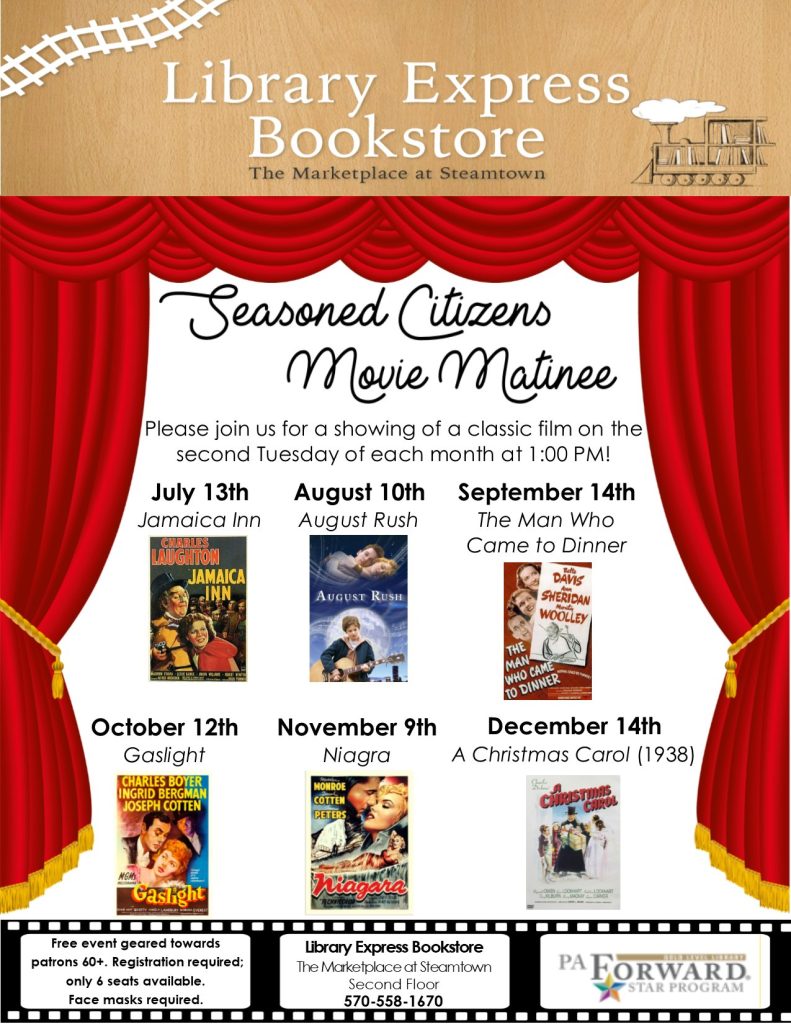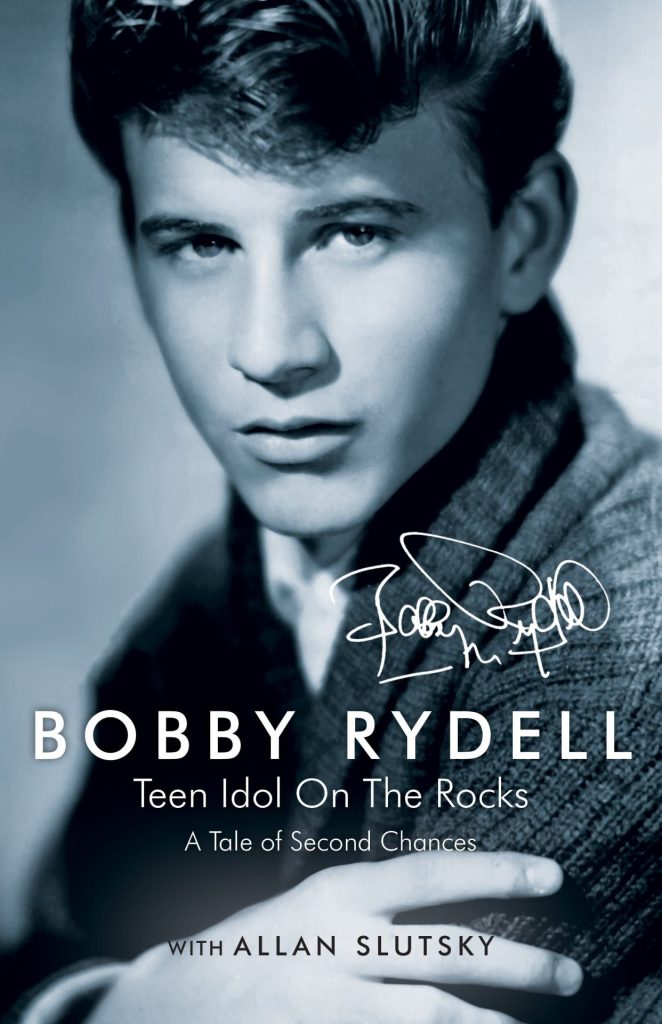Creating Community in Library Express’ History
Library Express has been committed to serving the community of Scranton in an interactive way since its opening in January of 2012. Over the past decade, this has been done in person, but this community has extended to online, as well. These interactions often come in the form of community events hosted in the store itself, though some are out-of-store interactions online. For example, on December 8, 2020, Library Express extended their book buying options to online customers through bookshop.com, which is a website that donates money to small bookstores, giving Library Express customers to help other communities (“Scranton Public Library/Library Express Bookstore.”). The monthly event calendar, shown on the Library Express website, is full of plans for the many types of consumers in the area, allowing them to be included in at least one, if not more, of the hosted events. The vast majority of these have been long-running occasions that have spanned multiple years in the decade Library Express has been open. For example, the ‘Seasoned Citizens Movie Matinees’ have spanned the second Tuesdays of most months since 2018 (“Library Express Calendar.”). The monthly Open Mic Nights have spanned the last six and a half years, since 2017.

However, the single event that has been present almost every month of every year since the opening of the bookstore have been the author book signings and readings. During this event, a selected author signs copies of their book in Library Express, usually accompanied by a reading or lecture. Their first ever book signing was Nancy McDonald’s book If You Can Play Scranton on January 28, 2012, and this tradition was quickly adopted by the bookstore, hosting authors of all genres and varieties (“Library Express Bookstore.”). Most books featured at these events are memoirs or history about the local area, but others have included genres such as romance, self-help, and young adult. Celebrated at these events have been both relatively unknown authors and famous ones, including Bobby Rydell, a famous 1960s singer, who signed his memoir. This inclusion of all authors allows people to see themselves at these types of events. Prospective authors feel comforted by the idea that, no matter how many copies they sell or how famous they become, there is always a place for them at Library Express. Of course, sales and fame do not determine a book’s quality, or the author’s quality for that matter, but it is a dream of most authors.

The popularity of memoirs and local history at the Library Express fits in perfectly with the community. The town of Scranton is a historic area with a widely known history of locomotives, but other aspects are lesser known, such as town name changes or the thriving mining industry (“About Scranton”). This history surrounds people and pushes them to write. Because so many people write what they know, the historic or memoir form is produced often in the area of Scranton. In this way, people are supported by others who have the same experiences. Allowing people to have a space of their own to show their hard work is an ideal area to create togetherness between people. Robert Hutton’s ideas about the comics industry are a near-perfect replica of the legitimacy created in other spaces of the world. He writes, “For the creators of independent comics, graphic novels, and other forms of comics that attempted to be more artistic and literary than the mainstream, the mainstream bookstore represented—and continues to represent—both artistic legitimacy and membership in a larger literary and artistic world” (Hutton 30). This parallel between industries shows the fact that all types of people have similar experiences, and this in itself is a community in the making.
Other events hosted in Library Express have included community discussion circles, set times for certain age demographics, and special interest clubs. The community discussion topics of the past have included parenting, writing, caring for archival books, and far more. Having a designated time and activity for certain demographics allows them to take part in the community and create their own based on who they meet and what they do. So-called ‘Teen Tuesdays’ are a perfect example of this. Setting aside time for teenagers, arguably one of the most isolated demographics, gives them the space to meet others who they might not meet otherwise and become more of a member of a community. Children’s craft times are another example of this. Parents are able to bring their children to a fun activity while simultaneously meeting new people themselves. The community that can be created simply by pushing people to interact with others can create a reflected sense of yourself in other people. In other words, a community can be easily formed by people who have only a few of the same interests or identifications.

The development of Library Express as a store is, in a way, opposing the ideas present in many opinion pieces about bookstore quality. For example, Jack Perry’s piece Bookstores, Communist and Capitalist speaks about the deteriorating quality of American bookstores, especially shown in his quote, “No one in these places seems to love books, or even to like them, except as money makers” (Perry 109). This is the opposite quality of Library Express as a place, which was built on a love of books. The hybrid structure of a library-bookstore could not have been created out of capitalistic greed and apathy towards books, the way Perry seems to think. Libraries as a whole have notoriously been created to share literature to all people. Library Express is no different in this regard. Without the desire to help people and create community, the progression of the bookstore would not have been as steady as it has been.
Community, as well, is its own sense of place. Without a community, you are relatively aimless, drifting through the world on your own. However, other people can be a place that you can identify yourself with solely because of the shared sense of community. Tim Cresswell reflects and explains this view in his idea of what makes a space into a place: “One answer is that they are all spaces which people have made meaningful. They are all spaces that people are attached to in one way or another. This is the most straightforward and common definition of place—a meaningful location” (Cresswell 7). The creation of place has been achieved through the community gathered by Library Express. Their events of the past have transferred to communities of the present, perfectly tying people together in long-lasting ways.
Library Express is a bookstore that creates community and legitimacy in all who use it. This legitimacy creates different meanings to all who patronize the bookstore, but also pushes people to create their own place through the space, explained by Cresswell in his writing, “This anonymous space has a history—it meant something to other people. Now what do you do? A common strategy is to make the space say something about you… Thus, space is turned into place. Your place.” (Cresswell 2). In the process of creating their own place in Library Express, people have given parts of themselves to the store and surrounding area. Staff give themselves to create events and gather people, customers give themselves to the bookstore and to other people, and the bookstore itself gives a space for people to create a place in. Any and all aspects of Library Express have long been integral to the creation of the current bookstore. The current bookstore is akin to Perry’s recollection of his idealized bookstore: “I felt as if I were in the right place, in that little bookstore, and that the future of American literature had to be all right” (Perry 111). Though Library Express itself is not a historic venue, its creation of community and place have made it into an accepted part of the community that will be remembered in history.
Sources Cited
Hutton, Robert. “A mouse in the bookstore: Maus and the publishing industry.” South Central Review, vol. 32, no. 3, 2015, pp. 30–44, https://doi.org/10.1353/scr.2015.0025.
“Library Express Bookstore.” X, X, twitter.com/libraryexpress. Accessed 8 Oct. 2023.
“Library Express Calendar.” Lackawanna County Library System, lclshome.org/library-express-calendar/. Accessed 8 Oct. 2023.
Perry, Jack. “Bookstores, Communist and Capitalist.” Bibliophilia, 2001, pp. 107–111.
“Scranton Public Library/Library Express Bookstore.” Bookshop, bookshop.org/shop/libraryexpress. Accessed 8 Oct. 2023.
Cresswell, Tim. Place: A Short Introduction. Blackwell, 2011.
“About Scranton.” City of Scranton, scrantonpa.gov/our-community/work-from-here/. Accessed 8 Oct. 2023.
Images Cited
Free Online Timeline Maker, time.graphics/. Accessed 8 Oct. 2023.
“Library Express Bookstore.” X, X, twitter.com/libraryexpress. Accessed 8 Oct. 2023.
“Library Express Bookstore.” Lackawanna County Library System, lclshome.org/b/library-express/. Accessed 8 Oct. 2023.

0 Comments